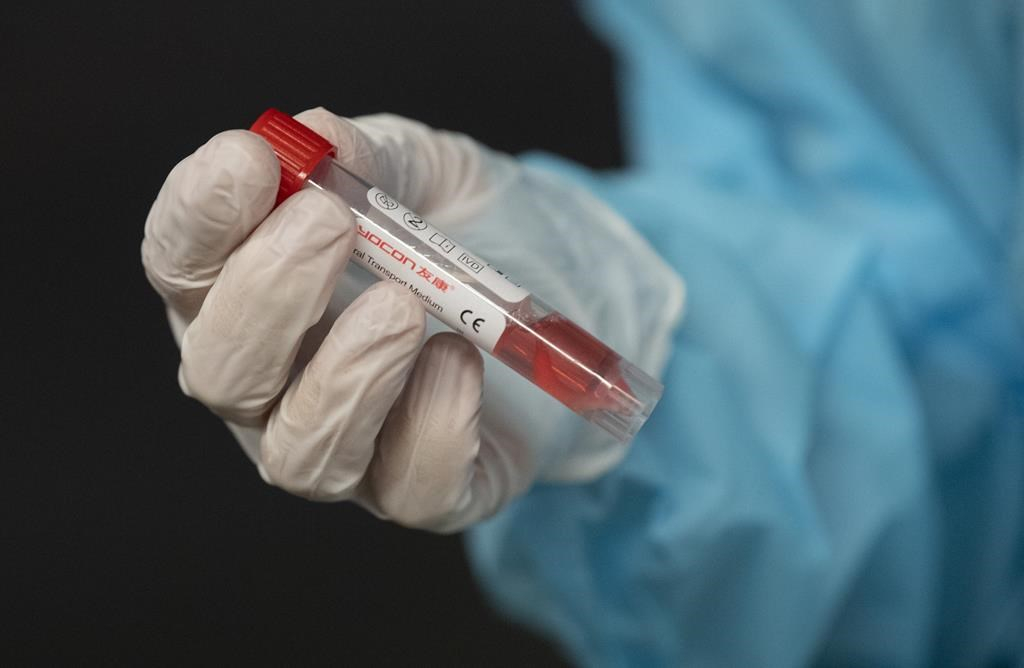The BC Centre for Disease Control has detected Canada's first known case of a new COVID-19 variant that has swiftly circled the globe, in what one expert says is a reminder the virus never went away.
The centre said the BA. 2.86 variant of the Omicron strain was identified in a person from the Fraser Health region who hadn't recently been outside the province.
Provincial Health Officer Dr. Bonnie Henry and Minister of Health Adrian Dix said in a joint statement that there doesn't seem to be increased severity with the strain and the infected individual is not in hospital.
The U.S. Centers for Disease Control says the new strain may be more capable of infecting people who have previously had COVID-19 or have received COVID-19 vaccines, compared to previous strains.
The World Health Organization says it's monitoring the variant due to its large number of mutations. It was first detected in Denmark on July 24, and has since turned up in Israel, South Africa, Britain and the U.S.
Dr. Brian Conway, an infectious diseases specialist and medical director of the Vancouver Infectious Diseases Centre, said in an interview Thursday that the variant has likely been in circulation for weeks if not months.
"It's the evolution of COVID," he said. "It doesn't surprise me."
Conway said BA. 2.86 may not cause more severe illness but transmits more easily than other strains of the disease.
"That's why new variants emerge and take over, they just crowd out the old variant," he said.
A new vaccine, he said, will be the most important way to protect against new variants, adding that it's a reminder that "COVID never went away completely."
COVID-19 is still killing roughly four people a day in Canada, Conway said, pointing to Health Canada data showing 30 COVID-related deaths in the past week.
Conway said as fall approaches and people spend more time indoors and viruses replicate more easily, "we should, be prepared for an increase in COVID illness, COVID hospitalization and COVID mortality."
"To me the new variant is just a reminder that COVID is still around," he said.
Henry and Dix also said it wasn't unexpected for the strain to show up in B.C. and Canada, and the risk to people in B.C. "has not changed."
"COVID-19 continues to spread globally, and the virus continues to adapt," they said.
"Reducing transmission and having high levels of protection through vaccination continue to be our best defence against all variants of COVID-19."
They said people should "stay home when sick, wear masks when appropriate, follow respiratory etiquette, wash hands frequently and, most importantly, stay up to date on your vaccinations."
Their statement said the detection of the variant reflected ongoing data monitoring and surveillance in B.C., including testing of people with COVID-19 symptoms and "innovative new wastewater surveillance."
"The latest wastewater surveillance with whole genome sequencing shows no other detections of this strain of the virus so far," it said.
The XBB 1.5 strain was still the most common subvariant reported in B.C., the statement said.
This report by The Canadian Press was first published Aug. 29, 2023.




Comments